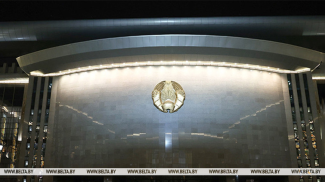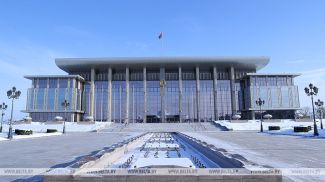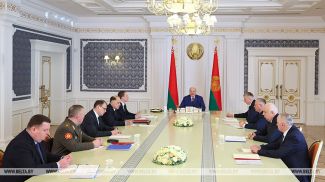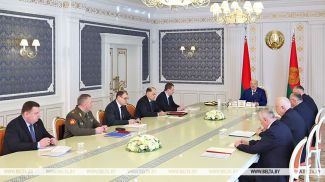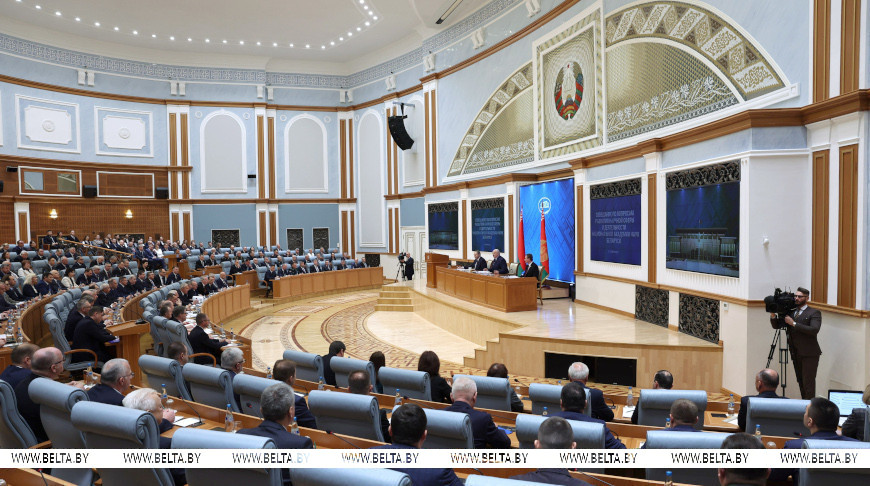
(Updated at 15:09)
MINSK, 21 November (BelTA) – Belarusian President Aleksandr Lukashenko convened a meeting to discuss the development of the science and the activities of the National Academy of Sciences of Belarus (NASB) on 21 November, BelTA has learned.
The event had been announced long ago. The president spoke of the need for such a meeting with the scientific community during a session with the working group to analyze the NASB activities on 5 August. “I am confident that we need to discuss with the scientific community the challenges of science development (and the future of our science). We will do this in the near future, definitely this year,” Aleksandr Lukashenko said.
Among the participants of the meeting were senior officials, chairmen of regional executive committees and the Minsk City Executive Committee, representatives of government bodies, members of the Presidium of the National Academy of Sciences, heads and staff of NASB organizations, higher education institutions, and sectoral organizations. In total, more than 250 participants attended.
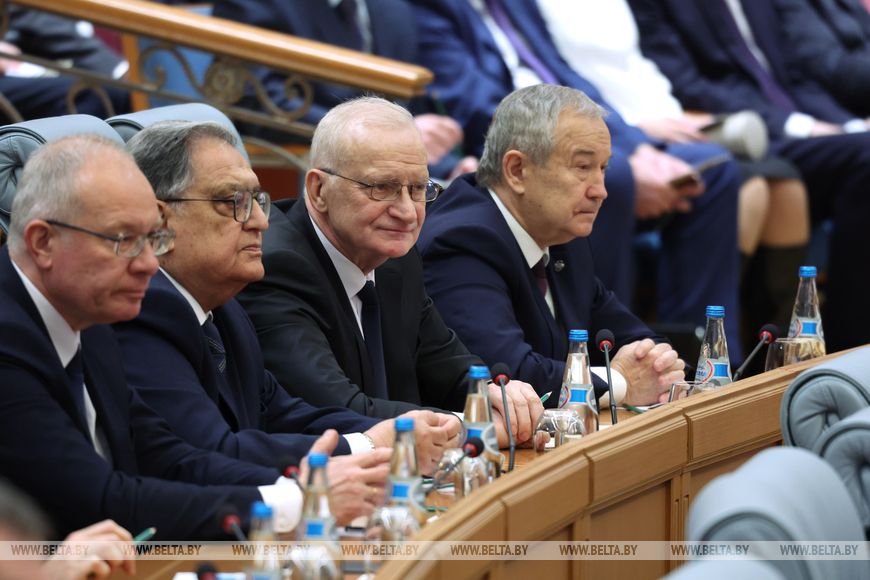
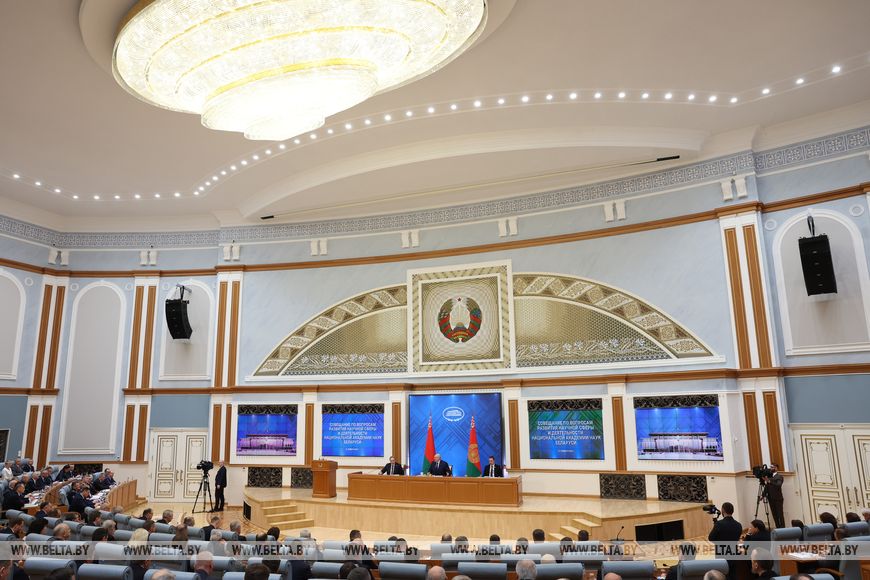
Lukashenko: The status of scientists stems from their accomplishments
The head of state said that the day before the conference he had received several analytical memos and every one of them mentions the need to elevate the status of scientists. This is why Aleksandr Lukashenko identified his principled stance on this matter.
“I’d like to ask you about the status of scientists. Do you want me to elevate your status? You should think it over like I do. I’ve been thinking for a week about how to raise your status. Nobody can raise the status except for the scientists themselves. You should do it,” the head of state noted.
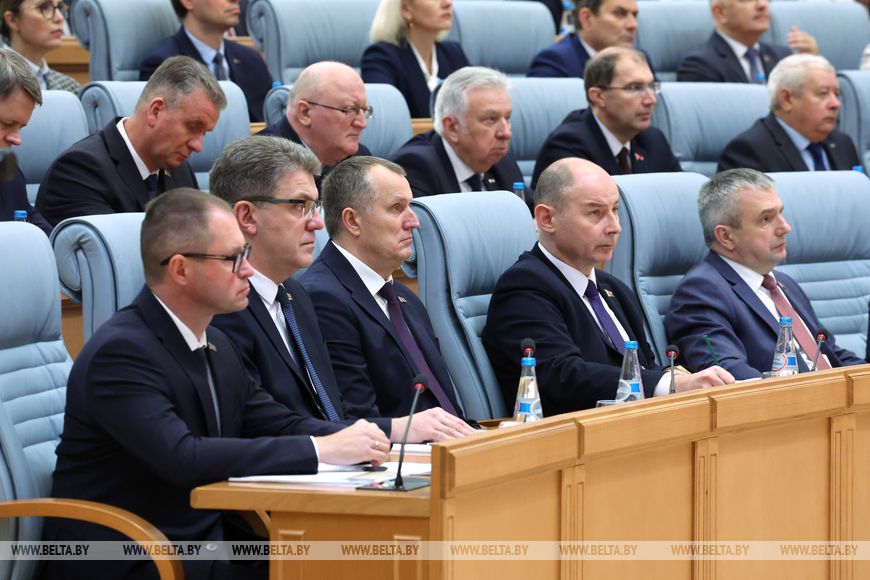
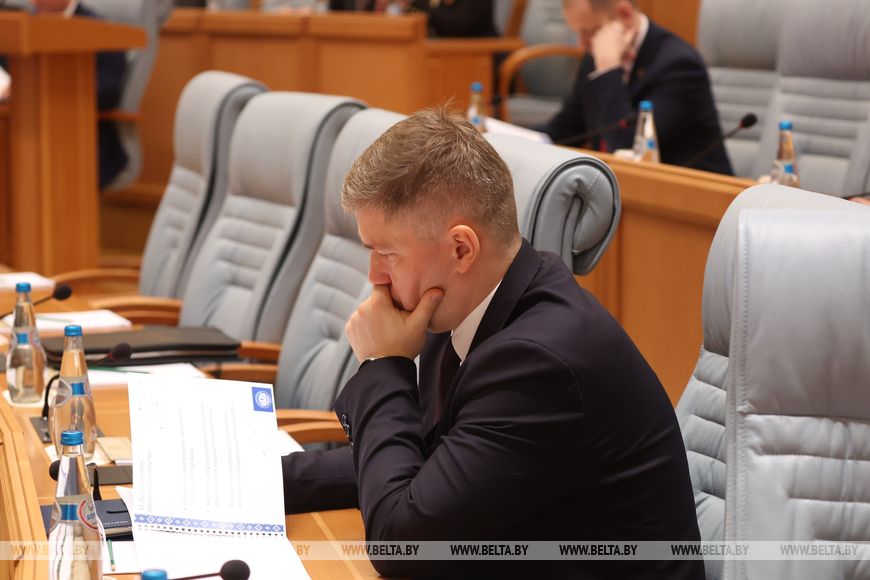
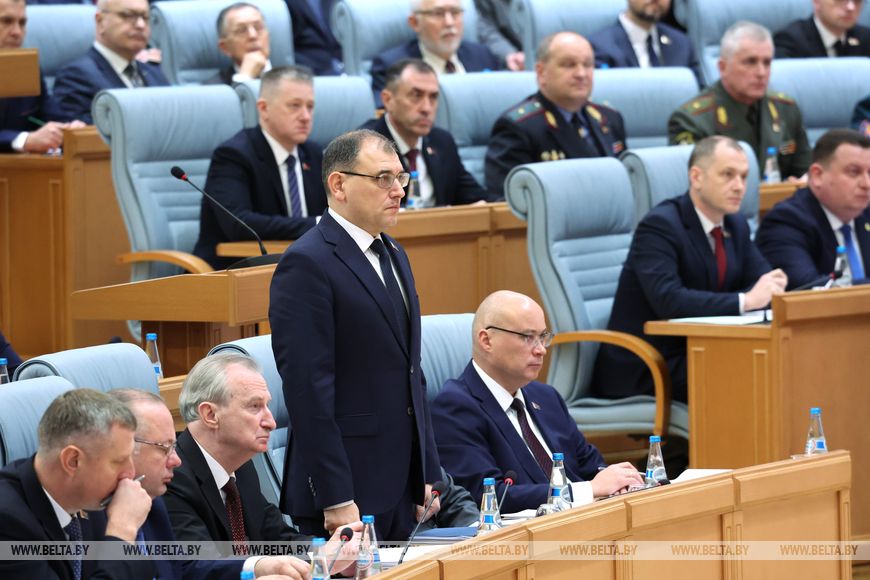 Aleksandr Lukashenko asked a simple question: where is the scientist, whose name is well-known at least in Belarus let alone the entire world or even the post-Soviet space?
Aleksandr Lukashenko asked a simple question: where is the scientist, whose name is well-known at least in Belarus let alone the entire world or even the post-Soviet space?
“How to elevate the status of scientists is a question not only I should answer but you as well. Remember: if you don’t elevate it, you will have no status. The status is not about wages and money. It is about your level as a scientist. This is why you should look for the status of scientists in yourselves,” the Belarusian leader stressed.
The head of state presented concrete practical examples where the use of scientific knowledge could have a positive effect on the economy. The development of field balers and milking machines was mentioned since they are in demand in agriculture.
“I am identifying the track we should use in order for me and you to discuss the problem today instead of coming here and moaning that we haven’t done something or that we haven’t accomplished something. Let’s accomplish,” Aleksandr Lukashenko encouraged.
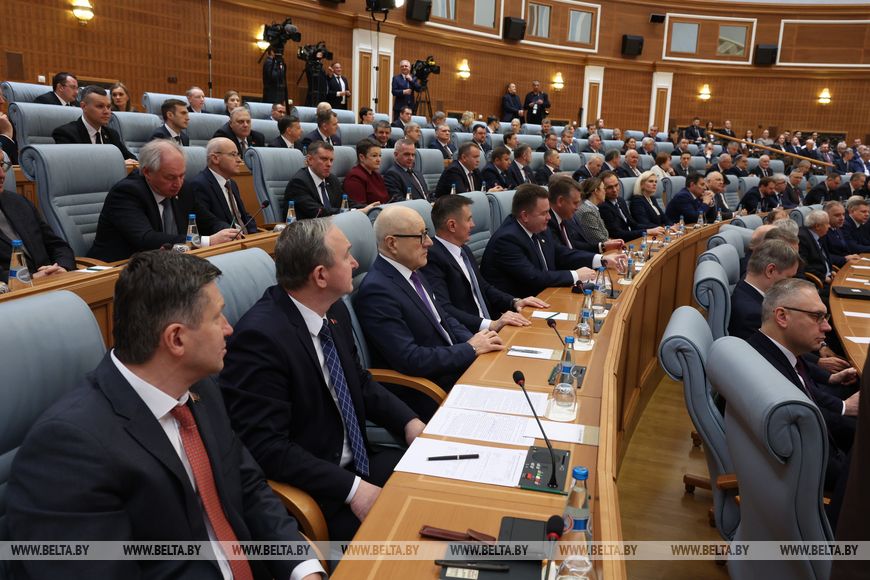
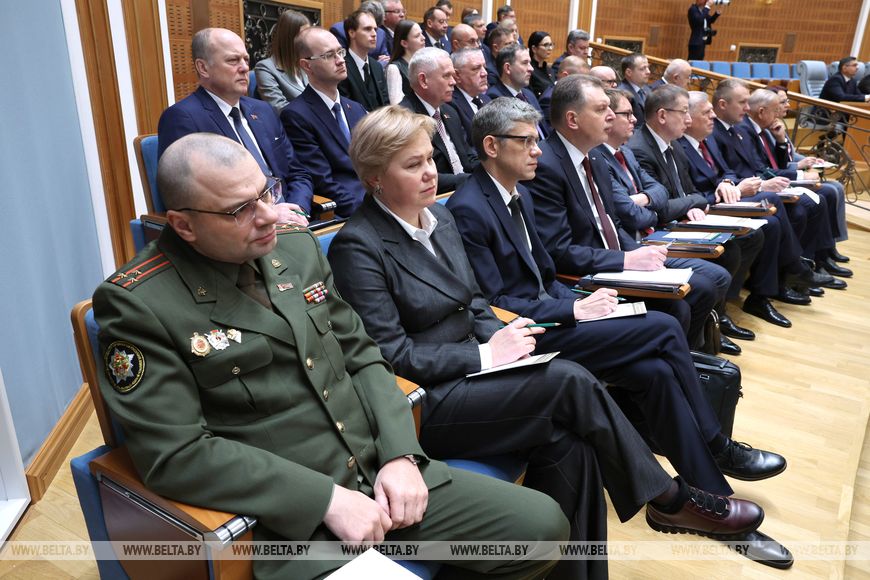
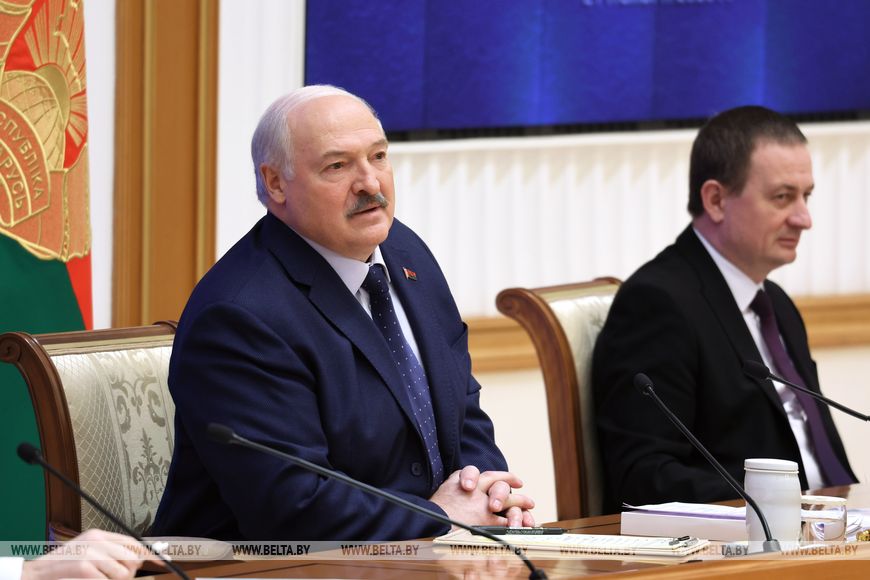 Lukashenko urges scientists to set ambitions aside: There can be no country without science
Lukashenko urges scientists to set ambitions aside: There can be no country without science
“There can be no country without science. And today, science is of the utmost importance. Are you ready for this? If so, let’s get down to work, without ambition or pretense!” the head of state said. “Our society has reached a point where, without science, there will be no further development. We will fall behind, we will decline, and we will be trampled by those who follow us.”
The head of state emphasized that now, not only strategy but also tactics are vital. “It is a time for concrete action. Because time has chosen us. And no one will do it for us. We cannot pass this ‘legacy’ to our children,” the Belarusian leader stressed.
The president emphasized the pivotal role that scientists (primarily educators) play in guiding the youth. “The education of our young people must be grounded in the value of labor. You, the scientists in education, carry a great responsibility, as do our university rectors, as these students are our future elite. Reflect on the issues I have raised, and let us proceed with our discussion in this vein.”
The president emphasized the pivotal role that scientists (primarily educators) play in guiding the youth. “The education of our young people must be grounded in the value of labor. You, the scientists in education, carry a great responsibility, as do our university rectors, as these students are our future elite. Reflect on the issues I have raised, and let us proceed with our discussion in this vein.”
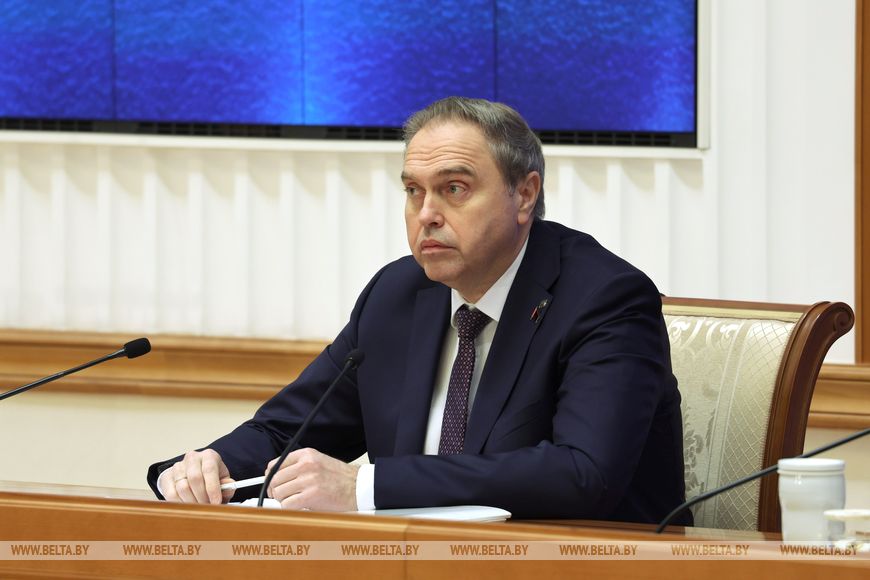

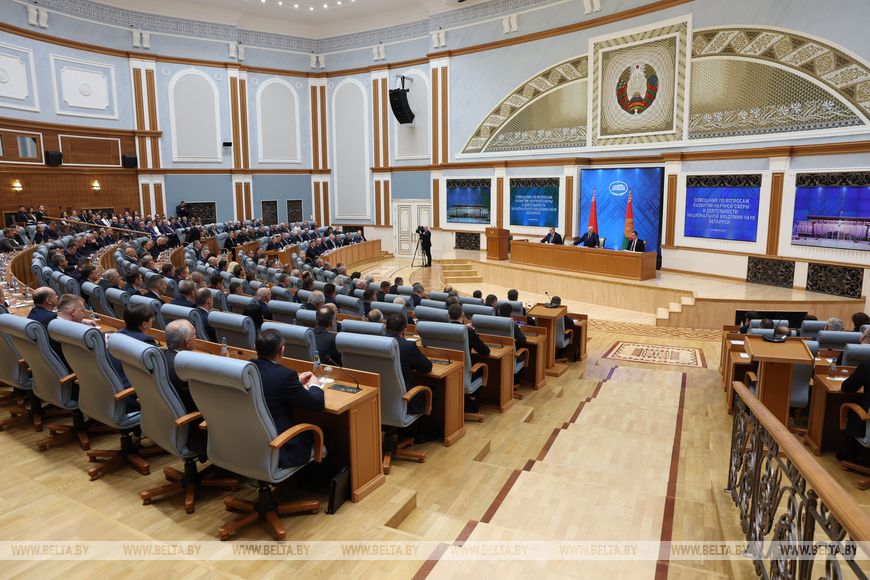 Lukashenko sets deadline for finalized proposals on developing science
Lukashenko sets deadline for finalized proposals on developing science
During the conference, Chairman of the Presidium of the National Academy of Sciences of Belarus Vladimir Karanik presented a number of proposals to improve research activities.

Aleksandr Lukashenko instructed the prime minister to review the relevant matters in the government, involving other responsible officials if necessary. “Decisions must be made on all issues. Every single one! I need a report by 1 January so that I can formalize it. Of course, your proposals [of the head of NASB] will be the foundation,” he instructed.
The president stressed that the key priorities he had outlined at the beginning of the meeting regarding the status of scientists, the effectiveness of their work, and the overall role of science in the country’s future development must be fully incorporated into the final version of the proposals.
“There will be no delay on my part. I promise that all documents submitted by you and the government will be signed by the president within 24 hours. We need to start working from 1 January,” the head of state assured.
Addressing the head of the National Academy of Sciences of Belarus Vladimir Karanik, Aleksandr Lukashenko once again reminded him of the task to focus on personnel and to determine who to work with. “If you need to involve the president, please do, or the government – go ahead,” he said.
“All issues must be resolved by 1 January!” the Belarusian leader emphasized once again. “So that our scientists cannot say that we failed to finalize something.”
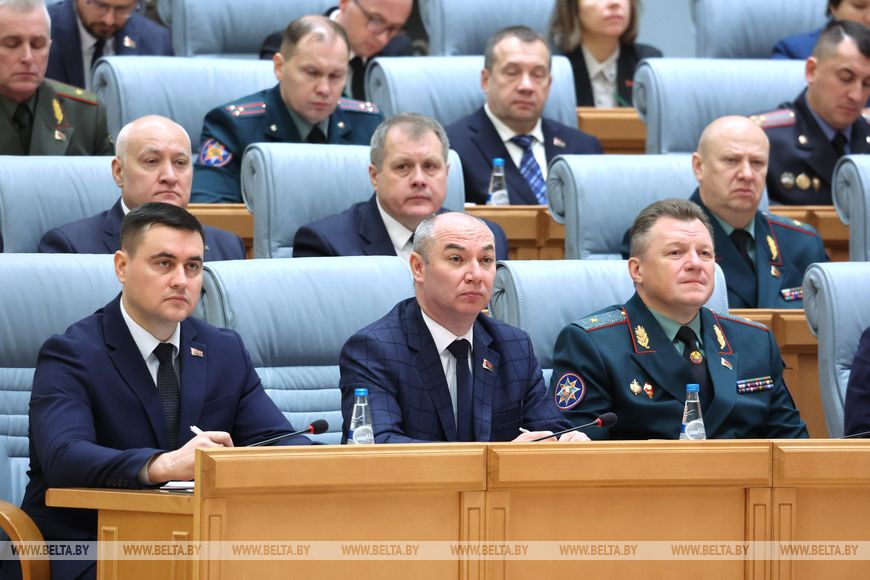

Lukashenko urges Higher Attestation Commission to maintain high standards
“Under no circumstances should the requirements be lowered while you are heading the Commission. There must be no relaxation,” the head of state said addressing Chairman of the Higher Attestation Commission Aleksandr Guchok. “I know it is not easy for you. Everyone wants a degree. But I want them not only to have a degree, but to be real scientists. The role of scientists must not be diminished.”
Aleksandr Lukashenko emphasized that it is better to have a smaller number of Doctors of Science, but with genuine results. “Behind each of them must stand a strong school,” the president stressed.
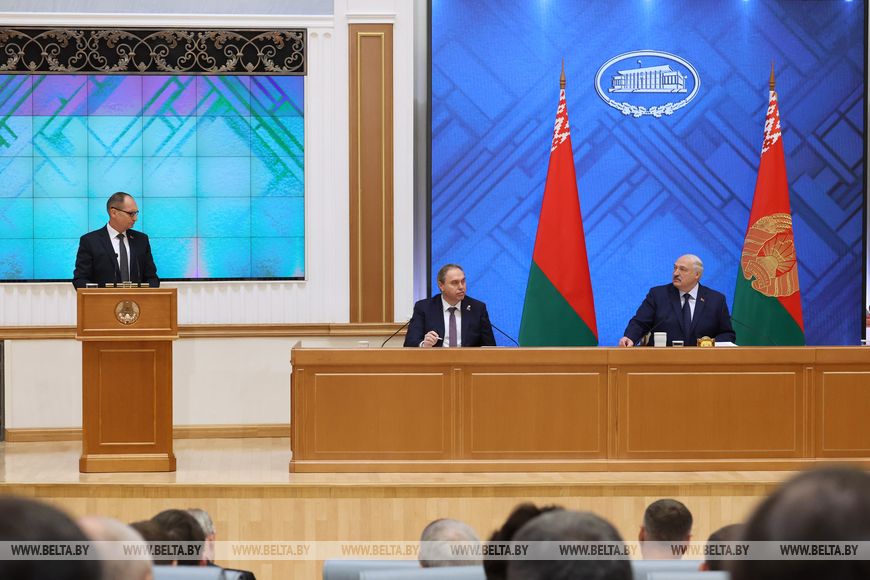
“Do not think we will ease the pressure here. By doing so we support true scientists. As long as I am president, I will demand this from you. The country needs good scientists! There must be no room for mediocrity,” the Belarusian leader stated.
He made similar remarks regarding lecturers, urging them not to rely on outdated materials. It is important, he said, to follow modern trends and keep up with practice, rather than focusing solely on having a degree.
Lukashenko: Belarus should bolster its manufacturing competencies
While recognizing the nation’s many strengths, the president insisted on the imperative of continuous progress. “We need to develop our industrial competencies,” he remarked.
Aleksandr Lukashenko emphasized that this is the primary area where funding should be directed in order to ensure domestic products surpass their foreign competitors. Citing the production of MTZ tractors as an example, he advised: “Improve the quality, create a super-tractor based on the model we already have.”
The president also underscored the critical need to bridge the gap between manufacturers, who should act as customers, and the research community. This coordination is the responsibility of the State Committee on Science and Technology.
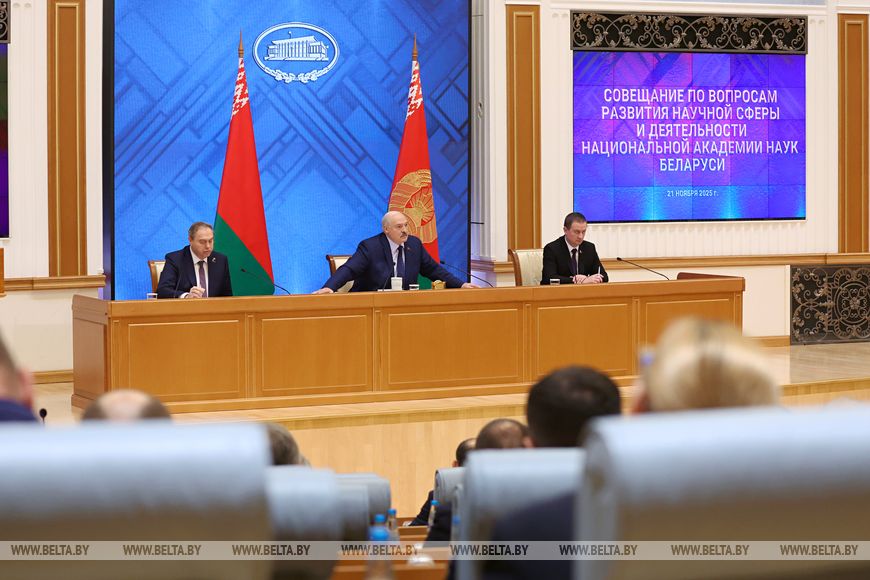
Drawing on his long-standing industrial experience – including roles as minister and deputy prime minister – Brest Oblast Governor Piotr Parkhomchik also stressed the critical need to connect science and industry. He highlighted the necessity of rapidly implementing prototypes and advancing them to the stage of serial production.
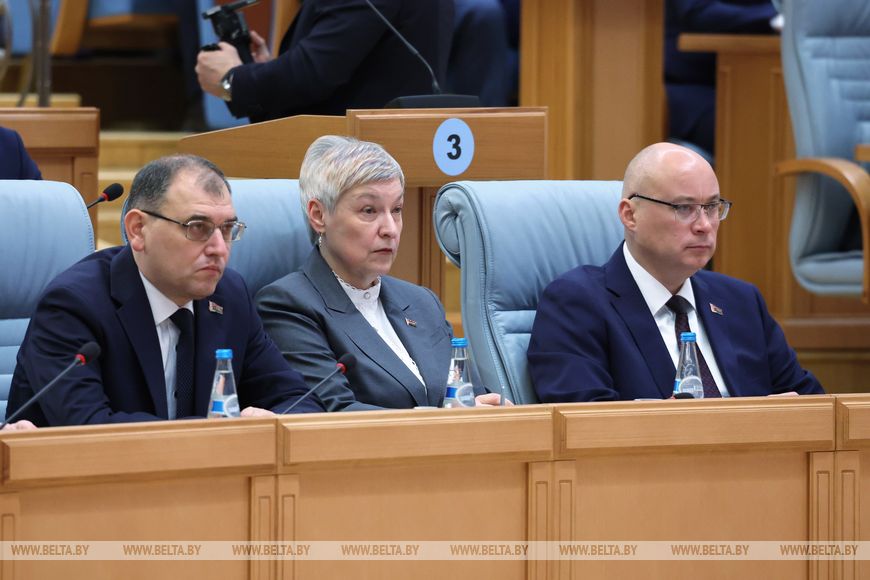
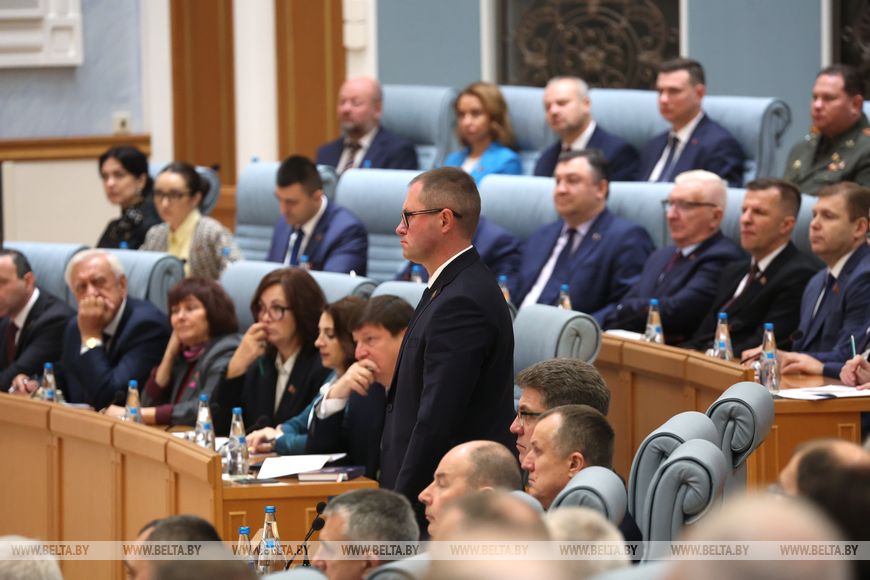 “The most crucial aspect is innovative development. We cannot stop at any particular cycle. We must constantly move forward. Once you have completed one development cycle at your company, you must urgently proceed to the next. Only then will you be competitive,” Piotr Parkhomchik emphasized.
“The most crucial aspect is innovative development. We cannot stop at any particular cycle. We must constantly move forward. Once you have completed one development cycle at your company, you must urgently proceed to the next. Only then will you be competitive,” Piotr Parkhomchik emphasized.
Lukashenko: Science should become a genuine driver of the country’s development within five years
The president reminded that a meeting with the working group in charge of analyzing the operation of the National Academy of Sciences of Belarus took place in August 2025: “A study of its conclusions and proposals demonstrates that there are obvious shortcomings and imbalances in the operation of the National Academy of Sciences of Belarus and the entire scientific sphere. We have talked about it today. Maybe even excessively. But there is also serious potential.”
The head of state noted that in several weeks the Belarusian People’s Congress would have to approve the program on the country’s social and economic development for the next five years. Aleksandr Lukashenko called the program a document of utmost importance. “The document, in which science should manifest itself on a brand new level. It should become a genuine driver of the country’s development,” he stressed.
Lukashenko: Science funding is substantial, but efficiency is key issue
“I have said it many times and I will say it again. As the young sovereign state of Belarus was taking shape, we made science one of our key priorities. And we have never once doubted this decision,” Aleksandr Lukashenko said. “We have preserved our scientific heritage, upgraded the research infrastructure of scientific organizations, and established mechanisms for state financial support of research and development.”
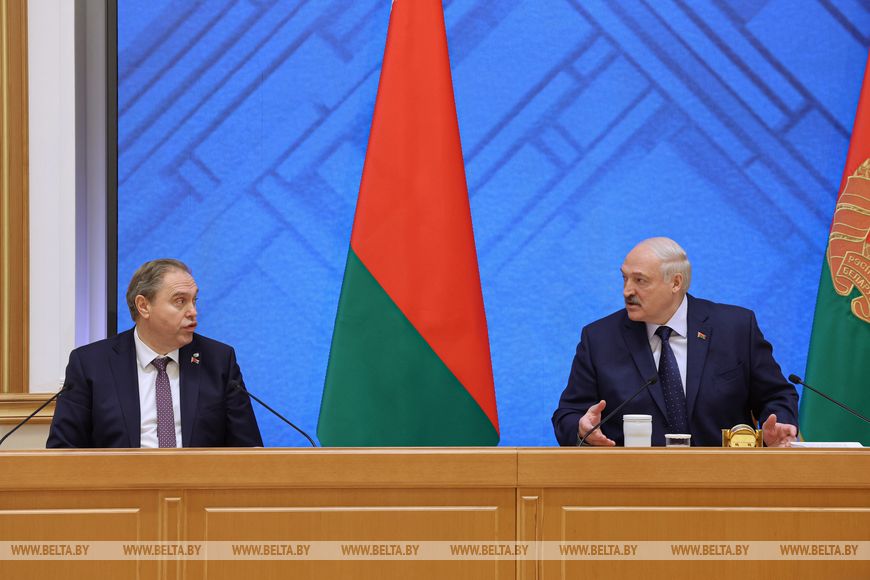
The president noted that state spending on science, technology, and innovation is increasing year by year. “Considerable funds are allocated for this. But the most important question is whether the return on the costs and efforts that the state spends on the development of science is growing. Not always, as we can see from our discussion today. Are we generating R&D products that meet the world standards (let alone surpass it)? Are they ready for implementation in the industries, or are they just for display on exhibition stands?” Aleksandr Lukashenko outlined the questions regarding the efficiency of the Belarusian science.
Lukashenko: Research papers must reflect the times, meet economic needs
“As I am informed, dissertation works do not always align with the priority areas of scientific, scientific-technical, and innovative activity. The topics of all research papers must reflect the times and the pressing needs of the economy and society,” Aleksandr Lukashenko said.
The president cited one recent example: “In one of the submissions I received, the topic [of the research paper] was ‘The method of pedagogical silence as a means of developing the cognitive independence of foreign students.’ How relevant and applicable this is later in teaching practice or in life is hard to say. And there are many such cases, especially in the humanities.”
Lukashenko calls for smooth generational change in Belarusian science
Aleksandr Lukashenko said: “At present the top-priority problem is the natural ageing of scientific personnel, particularly in fundamental research. We can increase funding, build new buildings and labs, fit them with the state-of-the-art equipment. But we should constantly remember who will work in them. Young people constitute approximately one third of scientific personnel. Some say 40%. We have a genuine age gap among scientists aged 40-50 years. We need continuity.”
According to the president, every doctor of sciences and candidate of sciences should have followers and pupils. As of today it is not only a measure of personal success of a scientist but a measure of the scientist’s professional aptitude. It is also the most important criteria for getting scientific degrees or for getting elected an academician or a corresponding member of the National Academy of Sciences of Belarus.
“We need a linkup between experience and youth. What do we have? The number of researchers of the highest scientific qualification is getting lower. In some fields the numbers are already close to the acceptable threshold. Its further reduction may result in a critical decrease in the level of competence of individual organizations and of the scientific sphere as a whole and may become a hindrance to modernizing the economy,” the head of state concluded.
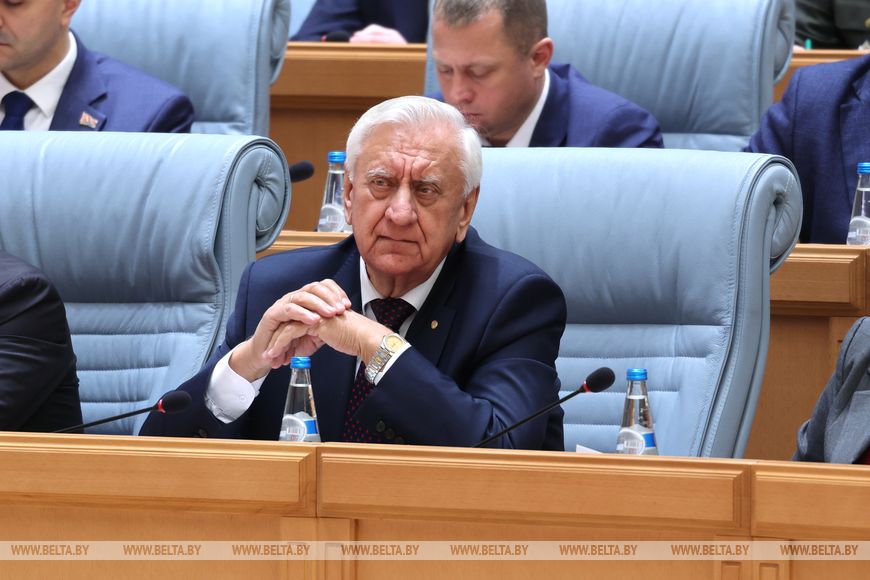
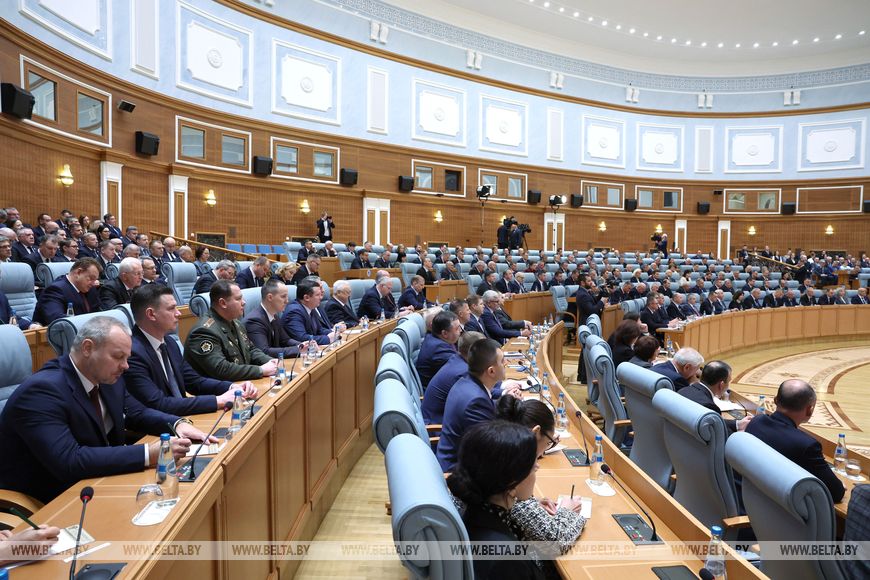 Lukashenko calls for stronger ties between university, academic, and industrial science
Lukashenko calls for stronger ties between university, academic, and industrial science
“It is necessary to enhance the level and productivity of interaction between university, academic, and industrial science, and to form joint interdisciplinary clusters and laboratories,” the head of state emphasized.
For instance, the role of the National Academy of Sciences in medicine remains insignificant, a point raised during a meeting of the working group analyzing the NASB’s performance. “You have lost the competition, as they say, to universities and national research and treatment centers although their performance is not very impressive, either,” the president remarked.
Aleksandr Lukashenko demanded a thorough analysis of the situation and, if required, decisive action. This is especially critical concerning budgetary expenditures. “We cannot waste our resources. There is no spare money. The times demand that we consolidate our efforts in key areas that will ensure the sustainability of the Belarusian state and a high quality of life for our people,” the Belarusian leader stated.
The president tasked the National Academy of Sciences with concentrating its efforts on solving the problems of the real economy. “This is an imperative, and it should be strictly adhered to,” he emphasized.
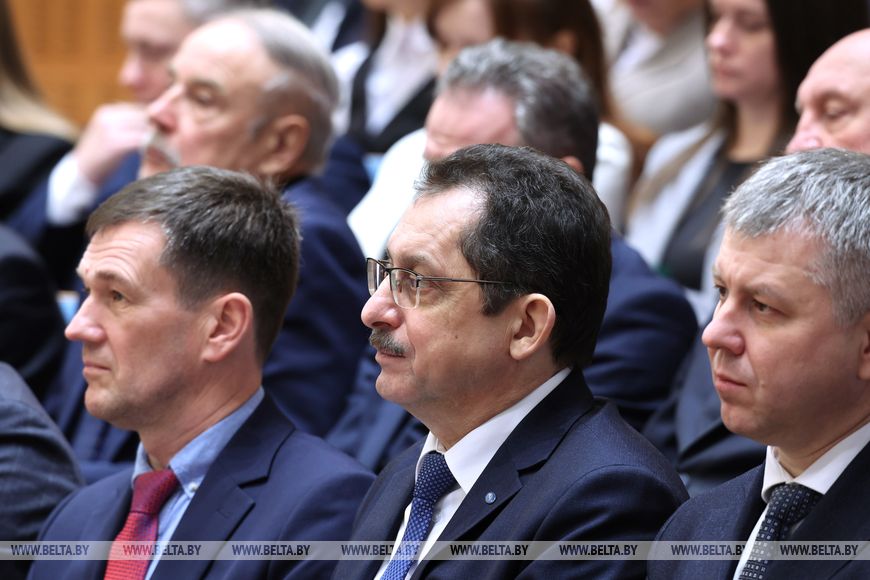
First, it is essential to strengthen cooperation with industry and large enterprises. The head of state emphasized that an innovation gap between the laboratory and the production line is unacceptable.
Secondly, Aleksandr Lukashenko addressed the issue of topical duplication and trivialization in scientific and technical programs. “The proposed topics often fail to yield new knowledge and workable technical solutions,” he said. The head of state clarified that in the fight against trivialization, it is vital not to overlook seemingly minor yet crucial topics. After all, without a new gear, it is sometimes impossible to produce a high-quality model of machinery.
Lukashenko demands scientists stop wasting resources on pointless research
Speaking about shortcomings in the work of scientists, Aleksandr Lukashenko pointed to duplication of research topics and insignificant, low-impact topics in R&D programs.
Speaking about shortcomings in the work of scientists, Aleksandr Lukashenko pointed to duplication of research topics and insignificant, low-impact topics in R&D programs.
“It might sound harsh. State programs are not a handout! The main task, first and foremost for the State Committee on Science and Technology, is to stop conducting pointless research and creating unpromising products!” the president said. “Then the issue of defending dissertations will resolve itself. Every task in R&D programs is a dissertation topic. If you complete the task, you will get an academic degree.” Another important requirement is filling programs with tasks that deliver results now, not later. We also must finally identify who the clients for these programs are. Furthermore, it is necessary to finally determine who the customers of these programs are.
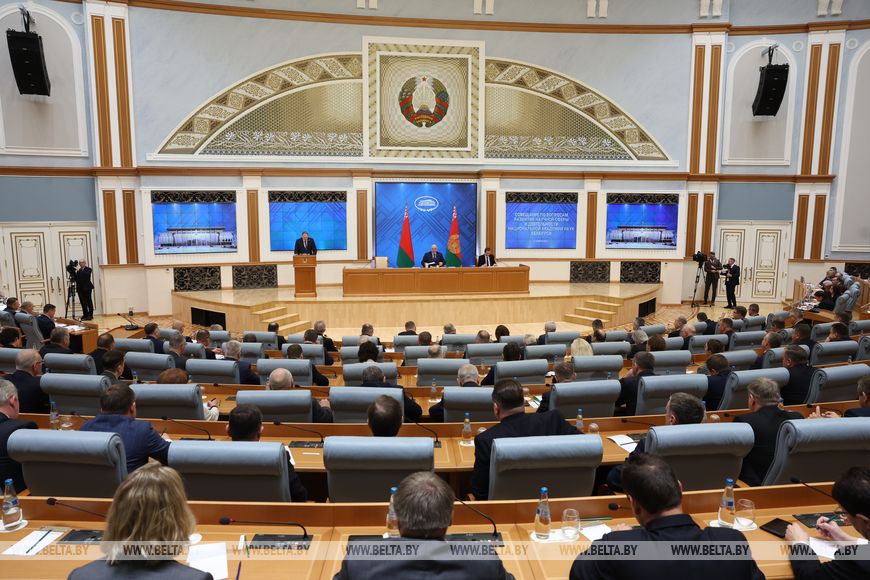
“As I have already stated, we will pay for the result!” the head of state emphasized.
He reminded that the State Committee on Science and Technology, which performs the functions of the State Control Committee in science, bears full responsibility for the effective use of funds. “In the next program cycle, your task is to conduct a strict but objective review of tasks, and organize work aimed at achieving results, not at squandering of state funds,” the president said.
He instructed to shift the priority to technologies that work for the entire economy, the so-called cross-cutting technologies. “It is no secret that they are precisely what allows the country to remain at the forefront of the global competition and avoid technological lag,” the Belarusian leader noted.
“It is necessary to create an environment where investment in these core technologies yields maximum benefit for the entire economy,” the head of state said.
In this regard, Aleksandr Lukashenko proposed working out a mechanism where the scientist would be responsible for commercializing the research results and then use the profits to pay back the state for some or all of the budget funds used.
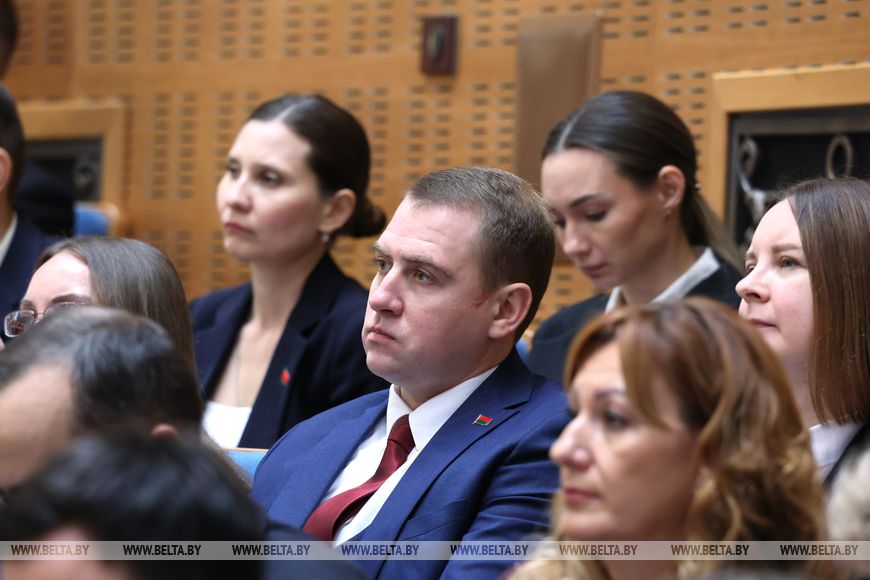
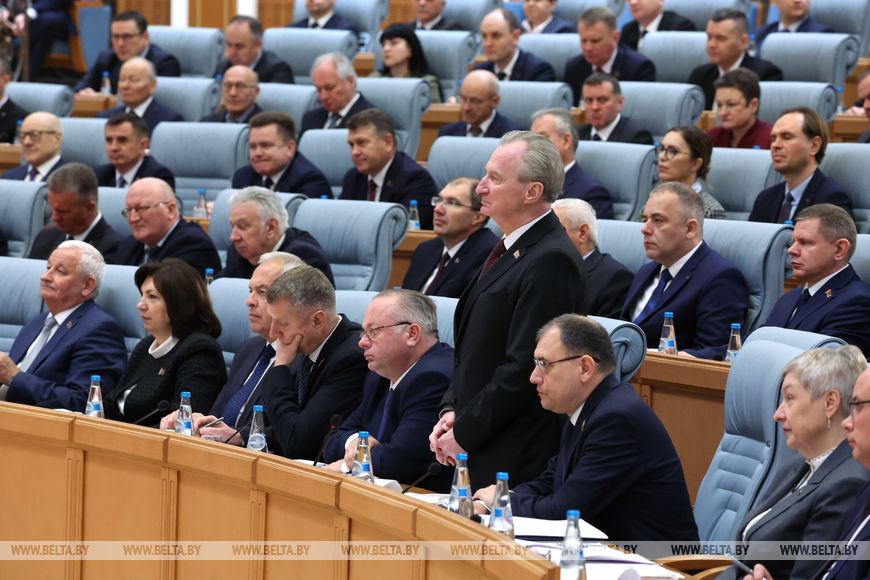 Lukashenko urges business, local authorities to drive innovation policy
Lukashenko urges business, local authorities to drive innovation policy
“Absolutely all entities must take direct part in implementing the state’s scientific and innovation policy,” the Belarusian leader emphasized. According to him, this applies both to the business sector and to local executive authorities. He noted that the latter’s involvement in state scientific, technical, and innovation programs has so far remained largely formal.
“Your task, together with universities, research institutes, and design bureaus, is to engage more actively in generating new major projects that will become symbols of the economy of the future,” Aleksandr Lukashenko instructed local officials. “It is not only about the nuclear power plant. The main criterion is results: creating new jobs and reducing technological dependence. Personal responsibility for this lies with the governors.”




